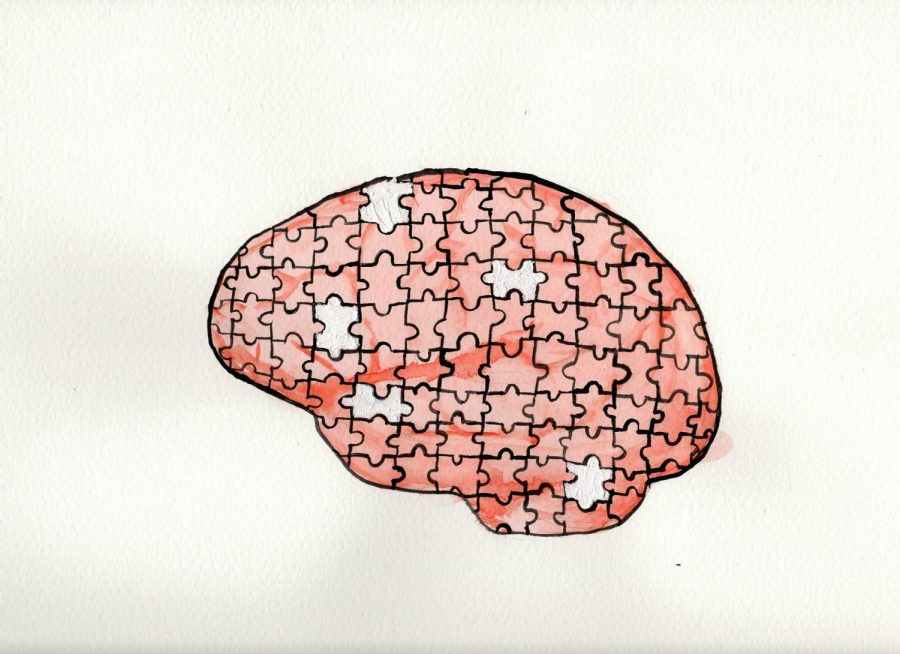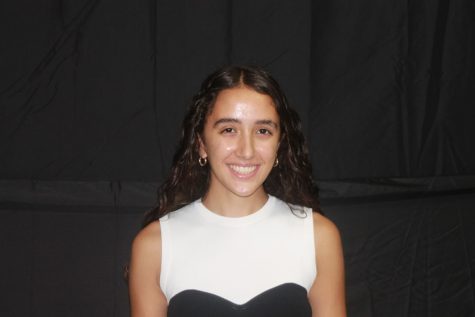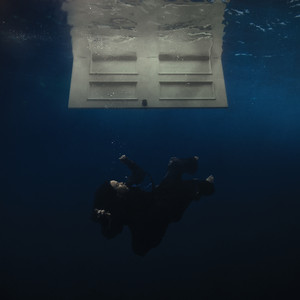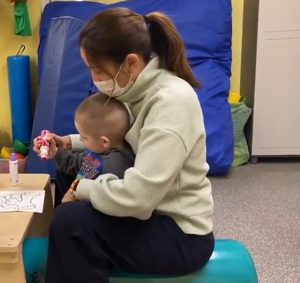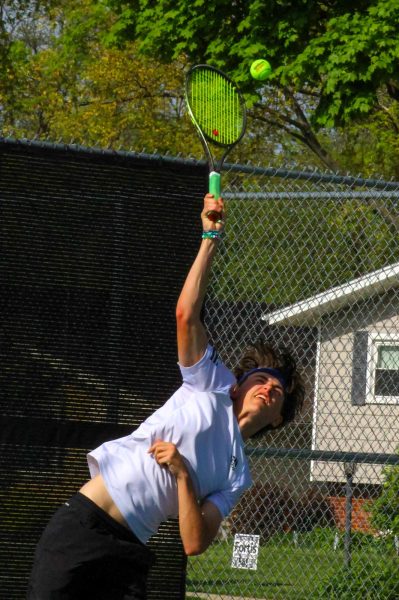Pandemic Leaves Lasting Learning Gap
September 29, 2021
—————————————–Continued from the Prospector————————————–
As a Knights Inspired to Teach (KITT) tutor, I was helping a sophomore with their geometry homework in the fishbowl of the library. At first, the homework they presented to me seemed like an assignment I would never be able to figure out given that I did not exactly cruise through geometry myself.
But after I began mentally breaking the homework down, it became a matter of simple algebra skills.
My flood of panic that I would be unable to help the student quickly washed away. The problem was a matter of finding the slopes of various lines that intersect with each other. In simpler terms, it dealt with the famous y=mx+b equation that I figured anyone who made it through algebra would already have ingrained in the back of their brain.
I guess I was wrong.
The reason this student could not correctly answer the question was because they were inaccurately trying to find the slope. I have to admit that it was difficult to hide my surprise, but I don’t know if I was more shocked at this discovery or at the unaffected response the student gave me once I told them what they were doing wrong.
It wasn’t until tutoring this student that I came to realize the impact that remote learning due to COVID-19 had on students.
However, after analyzing this situation, I know that I do not blame the student or any of their teachers for this gap in their knowledge. Rather, I blame it on the environment that the pandemic created for students worldwide. It was almost a do-it-yourself classroom, which can never turn out good.
Joyce Kim, Associate Principal for Instruction, anticipated that these losses in learning would take place because every student has a different story of how they learned during the pandemic.
Kim feels that a teacher-student connection comes before learning does, which I agree with. I am less likely to pay attention in a class where the teacher doesn’t at least make an effort to not bore me to death.
To combat this, Kim said she encouraged teachers at the beginning of the year to incorporate team building and games into their plans so that students genuinely enjoy going to school.
“I think connection needs to happen before learning happens,” Kim said. “So to not have a connection piece; it’s questionable. How much learning really did take place? I don’t know.”
Additionally, the Every Knight Achieves (EKA) tutoring program was established as a sect of KITT tutoring, which is an intervention program for students who are academically struggling.
I know that it would be wrong to get frustrated with the student that I tutored for not doing more last year in their algebra class to ensure they were better prepared for their sophomore year because I didn’t even do that. I don’t know that I can say many others did either.
During this confusing period, the concept of education felt like millions of light years away to me. This was noticeable when I picked up on my refusal to simply start my homework.
Of course, I have always had issues with procrastination since middle school, and even before then, but I always managed to finish the tasks I was assigned in the past.
The most dreadful of assignments were certainly my AP World History reading guides. The illogical fear of starting these daunting reading guides consumed me.
I found myself stuck between reaching for the fading memories of my old, motivated self and moving forward with the person I was becoming, who I didn’t like very much.
I like doing well in school. I like the feeling I get after doing well on a test because I know that I used every last waking minute I had to study for it. I haven’t felt that way in a long time, though.
Spanish teacher Ryan Schultz feels that the students whose motivation experienced a steep decline because of remote learning probably did not have an initial desire to learn the language.
“I don’t think the pandemic or anything has changed that,” Schultz said. “I think intrinsic motivation to learn a language will carry you where you want to go. It takes a lot of practice and a lot of dedication.”
From the moment I walked into Spanish class on the first day of sixth grade, I recognized that I had a need to learn as much as I could and knew that this was something I wanted to continue with.
Despite the multitude of setbacks in my knowledge of vocabulary and conjugating tenses, I have continued to deepen my knowledge as well as my passion for the Spanish language. The same can not be said for my other subjects.
This is why I think that the most deficiencies are seen in the basic skills of school. The lessons you are supposed to learn during middle school, which then become so familiar that you almost don’t even have to think about doing them.
These skills include time management, an attention span and creativity. These seemingly fundamental skills slipped away throughout the course of remote learning, and I was unable to hold onto them.
While I have fears for what the rest of my academic career and future will turn out to be, as I am already over the concept of school, math teacher Karen Kanupke isn’t worried about students being less prepared for their futures because of learning gaps.
She believes that this will make students better prepared to face adversity in the future and in turn make them better people.
No matter your thoughts on this topic, remote learning as a result of the COVID-19 pandemic has shocked a generation of the world’s students and will continue to trickle its effects into the leftover gaps.
Unless teachers make a conscious effort to be aware of the possible shortcomings of their students, I foresee this issue continuing to manifest itself within the classroom for years to come.




































































